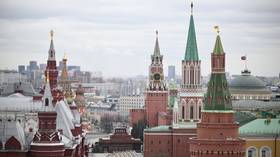Roaring Twenties again: 'Global impeachment' and the end of the era of liberal globalization

Now that another decade has flown by and the world awaits the arrival of 2020, it is only appropriate to look back at last century's 'Roaring Twenties'. Those twenties started globalization; these could see the end of its era.
As the world entered 1920, it had already lived through the devastating First World War. "The war to end all wars", it was one of the deadliest conflicts in history, leaving everyone shocked and badly damaged - but also harboring hope that humanity would never have to go through anything like it again. The 1920s started as a period of vigorous, vital economic growth. Globalization began with the introduction of the telegraph, telephone, radio and car travel. Large cities went on to grow as international trade and businesses centers, ultimately dominating the political and cultural scenes as well. The 'Roaring Twenties' ended with the most severe depression in our history, followed soon after by World War II.
Also on rt.com Normandy Four summit on Ukraine’s future: What’s at stake?Today, a century later, hope seems absent from the global radar, replaced with a feeling of growing apprehension. And this is probably good news; the more cautious we are, the lower the chances are that we'll drive ourselves into a major catastrophe. The world is going through massive changes at a much higher rate than ever before, and we have on our hands conflicts and challenges that can be compared to some of the worst episodes of the twentieth century. Today, all too frequently, the world feels like it's ready to explode. However, nobody expects a big war. The global system is kept alive by worldwide challenges such as climate change, as well as nuclear deterrence, emerging multipolarity, and growing interdependence. It may be glitchy, but the hope is that these failsafe mechanisms should be enough to keep us afloat. If not, that will only mean that the system is so outdated it can't continue to function.
Anti-Trump protesters hit streets of L.A. demanding impeachment of #US President pic.twitter.com/RTXHxDNS82
— RT (@RT_com) June 17, 2019
I'd say 2019 was the year of 'impeachment'. The American Democrats' protracted efforts to get rid of the Republican president spread like wildfire, consuming not just the USA but the whole world. On another level, and in a much broader sense of the word, impeachment has become the global trend. Public dissent and protest movements have gone viral. Venezuela, Moldova, Georgia, Catalonia, Hong Kong, Iran, Iraq, Lebanon, Egypt, France, Chile, Bolivia, Colombia, Ecuador – those names have been all around the news in 2019. That's in addition to the anti-establishment forces advancing at various elections. On a local level, the reasons may differ, but globally the trend is clear - people are taking to the streets to tell the authorities that they have failed them.
Also on rt.com Massive union strike shuts down transportation across France amid growing anger over Macron’s pension reform (PHOTOS, VIDEOS)In the digital world, everything works much simpler and faster than before. Previously, in order to organize a protest movement you first needed a core: a party, a secret organization, a leader, or an idea. With the proper funding, that could grow over time. Today, the worldwide audience is right there, browsing the social media space, and an appeal by an activist at the right time is enough to trigger a reaction. Even when it's not global, it is still massive enough. There is no longer any need for big speeches; it only takes one person to point out at an injustice, and if that strikes a chord, the protest takes off. It works just the same in different corners of the world, to the point that it makes one wonder whether there is some force coordinating this behind the scenes. But remember, everything works much simpler in the digital world. With total transparency and access to information, people share and learn on the go.
Tens of thousands march in #France against #Macron’s pension reformshttps://t.co/zQFG3t6AZjpic.twitter.com/FKloZZCb1V
— RT (@RT_com) December 11, 2019
1989 was one of the most fateful years in recent history. It brought major political transformation to the global scene, with many states departing from the Communist Bloc in favor of democracy. Looking back at the past 30 years, we can say that the international system has indeed become much more democratic, though not in the sense implied by Fukuyama's 'End of History' - i.e. with the triumph of Western liberal democracy. The world now has more voices; many more players are speaking up on the global scene. People are more politically aware and want to participate, rather than simply being governed. Until 1989, the world had a fixed order, a fixed ideology on both sides, and the life of the entire planet was defined by the political and military confrontations of two blocs. All institutions existed with one purpose only: to maintain the status quo. The bipolar system was stable enough to withstand multiple domestic and international crises for a long time. Until it wasn't anymore.
I would argue that today we are witnessing the grand finale of that robust system whose decline started so dramatically in 1989. The massive changes that took place between 1989 and 1991 didn't completely destroy the world that was shaped by World War II; there was no all-out collapse followed by something entirely new. Instead, the old system has been mutating for the past 30 years, trying to adapt to the ever-changing circumstances caused by the removal of the second 'pole'. It feels like this hasn't worked out well, and the system is now actively crumbling.
Chile protests 2 months: Police use tear gas on protesters pic.twitter.com/sSDuJFWyQ8
— RT (@RT_com) December 20, 2019
Today, in an unofficial 'global impeachment' movement, people take to the streets to tell their governments that they refuse to recognize them as such anymore. This is not a constructive approach, but it is an effective one. Global democratization has now gone too far for anyone to be able to ignore it. Even the most rigid and authoritarian governments now realize the need to keep track of people's feedback. The 'good old' days when any dissent could be fairly easily contained and suppressed are long gone. Governments have to produce a response – or, at the very least, to fake one. But no-one is buying fakes these days.
I believe that this increased activity of people on the political scene, regardless of the reasons that cause it on the local scale, drives the entire global system into a new direction, away from globalization.
For the past 30 years, globalization was believed to be the answer to everything. With globalization as a guiding star on their radar, national governments have been aligning their policies with the supranational agenda, increasingly distancing themselves from their own nations. The latter, in their turn, have been building up discontent, feeling used and abandoned to deal with the protracted economic crisis on their own. With the arrival of the all-powerful social networks, people found a platform to voice their protests. Suddenly, the powers that be now have to pay more attention to their voters. After all, who else makes them legitimate?
Also on rt.com ‘I want immediate trial!’ Trump takes aim at Dems for dragging out impeachment process in fresh attackThere are many reasons why the era of liberal globalization is coming to an end. The rise of powers on the global scene that were previously only supposed to ride in the 'back seat' is certainly one of them. People on the ground demanding that their governments come down to earth is certainly another.
Unlike the impeachment of a president, 'global impeachment' doesn't require a formal vote to come into force. It's already happening. The scale of changes brought about by new technologies is such that the process can't be contained. The new paradigm is emerging as the old one is crumbling. Which nations will pass this test and which won't, we will have to wait and see. But each and every one of them will have to find its own answer to the question of how to make it through the new 'Roaring Twenties'.
The statements, views and opinions expressed in this column are solely those of the author and do not necessarily represent those of RT.














